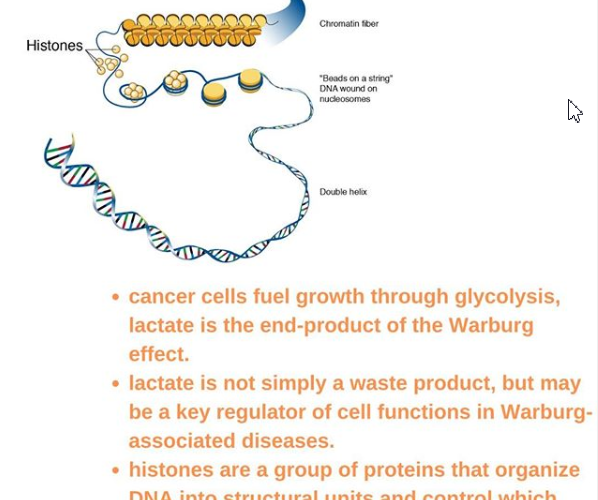A study published in Nature demonstrated that lactate is not simply a waste product, but a key regulator of cell functions in Warburg-associated diseases. Lactate changes the function of immune cells macrophages, rewiring them to behave differently.
Lactate is the source and stimulator of a new type of histone modification, which they termed histone lactylation. Histones are a group of proteins that organize DNA into structural units and control which genes are expressed.
Histone lactylation alters the cells from a pro-inflammatory and anti-bacterial state (known as M1) to an anti-inflammatory and reparative state (known as M2). This reparative M2 macrophage presence in tumors is known to promote growth, metastasis and immune suppression in cancer.
Researchers also detected histone lactylation in macrophages isolated from mouse melanoma and lung tumors and observed positive correlations between histone lactylation and cancer-promoting genes made by reparative M2 macrophages.
High lactate and histone lactylation levels in macrophages may contribute to the formation of tumors and their progression, i.e. The Warburg Effect.
Metabolic Regulation of Gene Expression by Histone Lactylation. Nature, 2019 DOI: 10.1038/s41586-019-1678-1.






